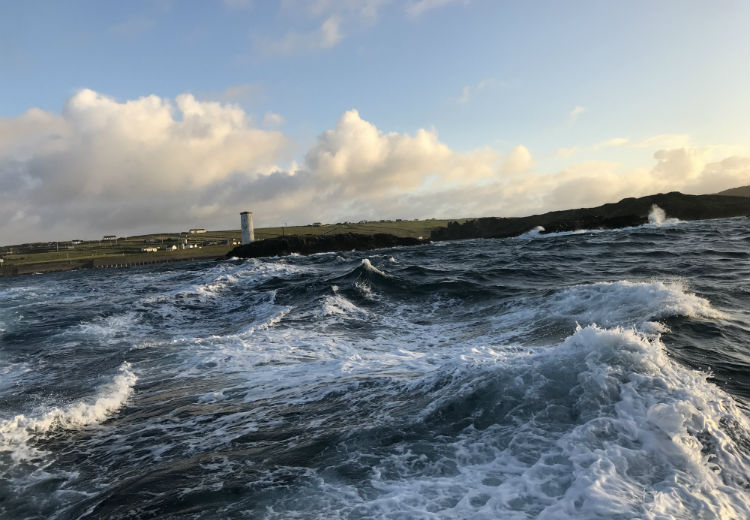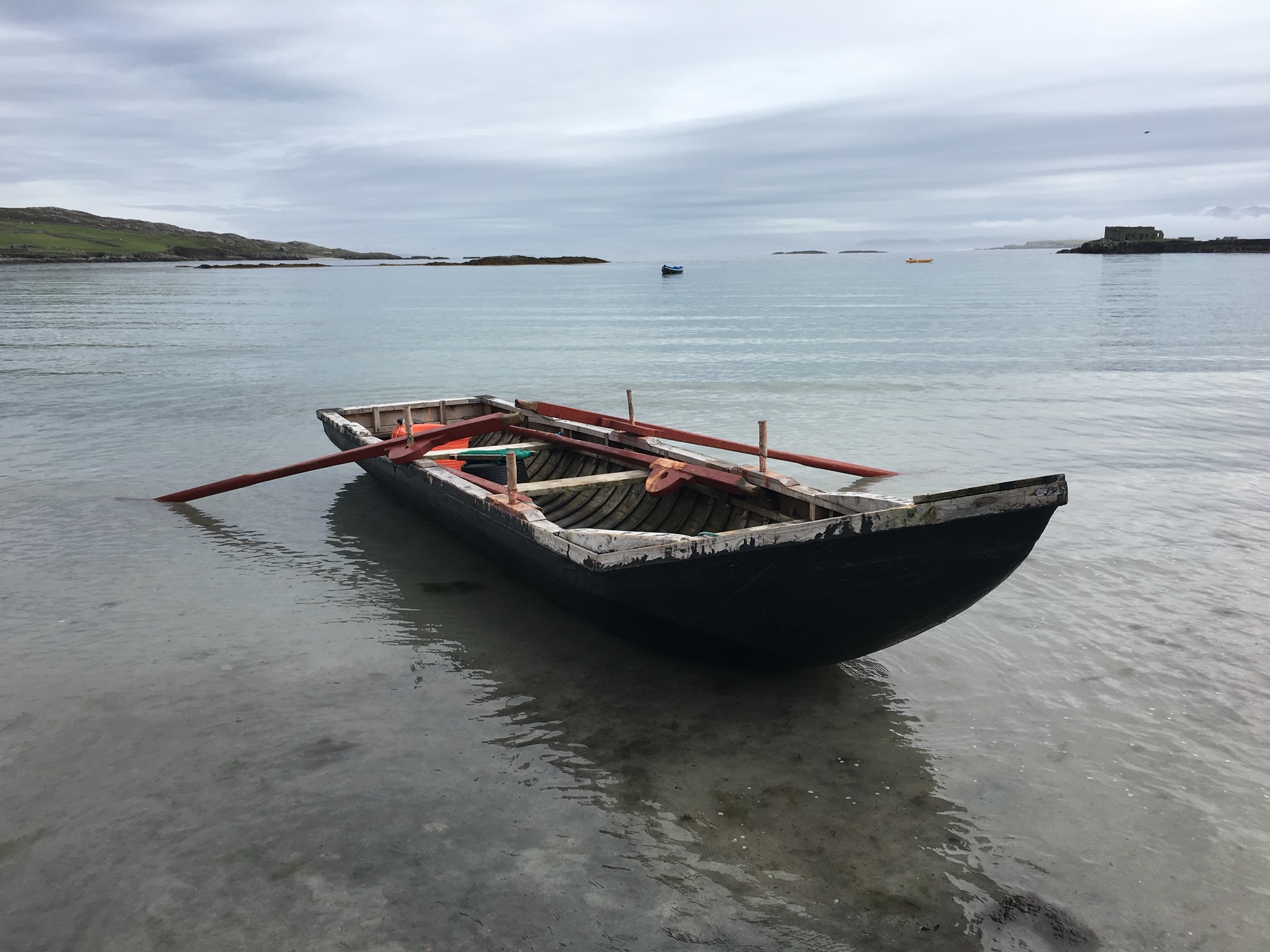Resilience & Resourcefulness: Life Lessons on a Row Boat

I often get asked how I survived all the major challenges that came my way in life, and only recently I had an experience that I soon after realised allowed me to answer that question quite easily. And it was because that experience made me revisit my strengths.
I and my partner had decided to row our little rowing boat between two islands off the west coast, a journey that would normally take only about two and a half hours. Being competent rowers it is quite an easy row really. And one we're very familiar with.
So we set out on a beautiful day. We had our camping equipment, some food, the dog and a bottle of gin. And of course, life jackets and a radio. The trip across was beautiful. We flew along, stopping only to fish; arrived early evening and set up camp. After walking the island, we enjoyed a drink at the local bar and settled down for the night after darkness fell.
Still and calm - it was a gorgeous evening with no light pollution, being miles from civilisation. I woke at 4 a.m. because something had changed. Gone was the silence; now the island was filled with the sound of wind - not much, but enough to make me aware. So I rose and checked the boat, and resolved that if the wind got much stronger, we would need to leave earlier than planned.

Leaving our safe haven......
I woke my partner to discuss it and we agreed to set off in a couple of hours. By dawn the wind was strong but not too strong, so we packed up. As we neared the boat we could hear the waves hitting the shore outside the harbour, but that’s not unusual on the sea. Swiftly we got ready, donned our life jackets and began to row outside our safe haven.
The first few minutes were a bit topsy turvy because often pulling away from the shore can be quite rough. We were rested so we pulled away with some ease. A couple of 100 metres from the shore we stopped to reassess, and decided the wind wasn’t sufficient for us to return to port. We were going to continue.
So we settled into the rhythm of rowing - oars in, oars, out. I’ve always found rowing to be quite meditative - the rhythm, the sound, the commitment, the strength. I always find it extremely settling, and satisfying. Generally my mind stays very still, and of course being out in the natural elements is incredibly meditative anyway. I could look at the sea forever.
Keep rowing, stay committed
As we continued it soon became apparent that the wind was rising fast, and at this point we were halfway. Hmmm, I thought. We had a choice: go back or go forwards, but either way we had to be committed. We decided to go on. Quickly we fell into a rhythm and began to count. I was counting from 1 to 10 and then 1 to 5, and again, 1 to 10 and 1 to 5. It was ten hard strokes, five easy ones, ten hard strokes, five easy ones.
But the wind came up even more, so those 10 hard strokes had to become 20, and those soft strokes a meagre five. We worked really, really hard. But soon there began to be no let-up. I remember feeling as if my muscles had no more power as I was pulling with all my might, just as my partner was.
It became clear that there was a very real danger of being blown so hard sideways that we would miss the inlet that marked our home port. So we upped our commitment. It was simply a case of putting your head down. I didn’t allow myself more than the odd second to check our course. I didn’t allow myself to say ‘What if.’ I didn’t allow myself to think anything else but ‘we need to keep our minds focused on one point, and one point only.’ So for hour after hour after hour, our oars went in, our oars came out, and I counted out loud.
At one point I needed a break for a second, just to re-seat my gloves, and as I did I realised I had actually rubbed all the skin off the palms of my hands from rowing so hard. At that moment there was no time for self-care, no time to fix anything. I couldn’t feel my hands anyway!
Team effort
So we continued to row together as a team. When somebody flagged, the other chipped in. Ours was a very concentrated, a very focused, team. Slowly we inched towards our destination. But just as we reached a place where we could take a break, we saw some rocks, so we had to renew our efforts again and row even harder. Any let-up would have meant we would hit them and founder.
At this point, then, our concentration levels were absolutely acute. We were tapping reserves of will and energy we didn’t even know were there, and eventually we rowed away from those rocks, rounded that corner and found ourselves headed for home.
That last half hour was one of relative ease. And then, finally, we were safe, able to let go of our oars for a moment and breathe. I looked down at my hands. There was no skin on the palms. But I felt so victorious because I had truly saved myself. Between the two of us, we had succeeded.
Resilience: belief, perspective, commitment, control
This is what we call resilience. Resilience is about believing in your ability to overcome a problem. Resilience is about taking on a challenge and seeing it as an opportunity. Resilience is about being committed to an outcome. And resilience is about having control over how you focus on something, or think about it, and believing in the outcome you want.
Optimism is a vital part of resilience And not seeing setbacks as permanent. And now know that this is how I overcame those major life challenging events.
- I stayed focused.
- I believed in a positive outcome.
- I didn’t see setbacks as failure. I saw them as opportunities for growth.
- And I kept my head. I absolutely kept my head down, and stayed to the task at hand, to the end.
It took me years of this - years and years and years of sticking to the task - but finally I won out. Finally, I had reached my safe haven. My home port: me, and the life I had always wanted.
And as part of that life, I now get to help others do the same. I’m not sure life can get any better. But I bet it will.
